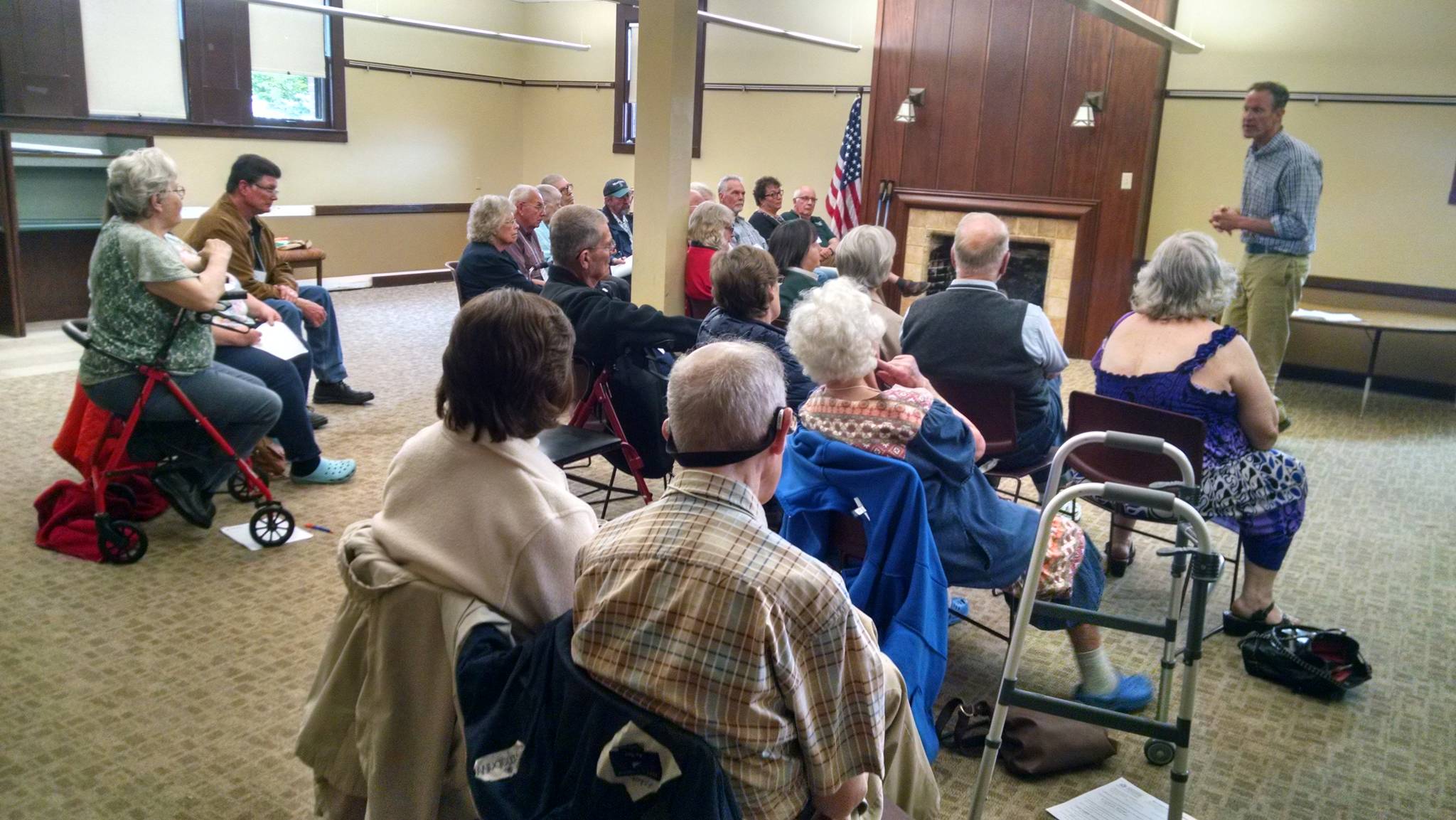This story was provided to The Daily World by the Grays Harbor Parkinson’s Support Group.
April is Parkinson’s Awareness Month. An estimated one million people in the United States live with Parkinson’s disease, the second-most common neurodegenerative disease after Alzheimer’s. Parkinson’s is a slowly progressive movement disorder that results from loss of dopamine-producing cells in the brain. Dopamine is a neurotransmitter which activates the message system from the brain to control movements. To date there is no known cure or cause, but researchers believe that both and environmental and genetic factors may play a role in the development of the disease.
Symptoms vary, but can include tremors, rigidity, cognitive impairment, and difficulty with balance, swallowing and speaking. The disease usually strikes after individuals reach the age of 60, at first occurring subtly and gradually. It progresses at different speeds in different people.
Hoquiam resident Bob Martin was diagnosed with Parkinson’s in 2012 when he was 59 years old. He and his wife Betsy Seidel then attended a class at Oregon Health and Science University in Portland for newly diagnosed patients. There they learned how important it was to regularly attend a Parkinson’s Support Group. When Bob and Betsy learned that the closest group was in Olympia, they decided to immediately start a support group on Grays Harbor.
Now, six years later, the Grays Harbor Parkinson’s Support Group continues to meet monthly on the last Tuesday of the month at 6 p.m. in the Hoquiam Timberland Library’s downstairs meeting room. Currently there are 44 members on the roster, and it keeps growing! It is a time to share concerns, solutions and joys with people who have Parkinson’s and their care partners.
Also guest speakers cover all sorts of topics relevant to Parkinson’s.
Here are some of the topics that have been addressed by the speakers: restless legs, safe driving, physical and speech therapy, fall prevention, North Beach Medical Equipment, Parkinson’s medicines, nutrition, Olympic Area Agency on Aging, Harbors Home Health and Hospice, RSVP, singing, dancing, YMCA programs, Personal Service Providers, Long Term Care and Assisted Living options, Timberland Library’s Aids for Better Living, Grays Harbor Community Hospital, wills and legal papers, eye care, traveling with Parkinson’s and speakers from Seattle’s American Parkinson Disease Association.
Since exercise is known to be very helpful for Parkinson’s patients, speakers taught yoga, Tai Chi, Sit and Be Fit with plastic balls, SAIL (Stay Active and Independent for Life) to the support group.
Aberdeen’s neurologist Dr. John Miller has also been an informative guest speaker a few times.
The group was also treated to a special visit by Seattle film maker Aimie Vallat who has made the documentary Present Moment about her dad, Gary, who has Parkinson’s. She, her dad and mom, and a representative from the Northwest Parkinson’s Foundation showed the award-winning film (that has been shown on PBS) and answered questions. The film shares one family’s perspective on how a chronic illness affects the whole family. The support group has a copy to loan out to new members.
Occasionally the group has break-out sessions where the patients and care partners separate to discuss relevant topics and share personal experiences. When Bob, Betsy, and Bob and Betty Paulsen attended the World Parkinson Congress in Portland, Oregon, they reported what they had learned. A group seven members were able to attend a HOPE conference together in Bellevue thanks to the Five Star van that is loaned to non-profit groups.
The camaraderie of the Grays Harbor Support Group has also grown. Now there’s a Christmas party and some of the members meet for dinner at Rose’s Tienda at 409 7th Street in Hoquiam (right across the street from the library) at 5 p.m. on the last Tuesday of the month, just so they can have social time before the meetings. Realizing you’re not alone and that you have fellow patients and care partners who understand your situation is empowering.
The guest speaker this month is Kyra Dauwalder from Seattle who is a technical specialist for Deep Brain Stimulation with Abbott (formally St. Jude Medical.) DBS is a surgical therapy option for movement disorders, including Parkinson’s disease, Essential Tremor, and Dystonia, where an implanted lead delivers electrical pulses to the area of the brain affecting movement. Kyra will be speaking on Tuesday, April 24 at 6 p.m. at the Hoquiam Library’s downstairs meeting room. She’ll explain what DBS is, what symptoms it helps, who is a good candidate, and how recent technological advances in wireless and directional stimulation capabilities optimizes treatment.
Everyone is invited. You don’t have to have Parkinson’s to attend this presentation.
For more information on the Grays Harbor Parkinson’s Support Group, contact Betsy Seidel at 360-533-5968 or betsycamel@yahoo.com


